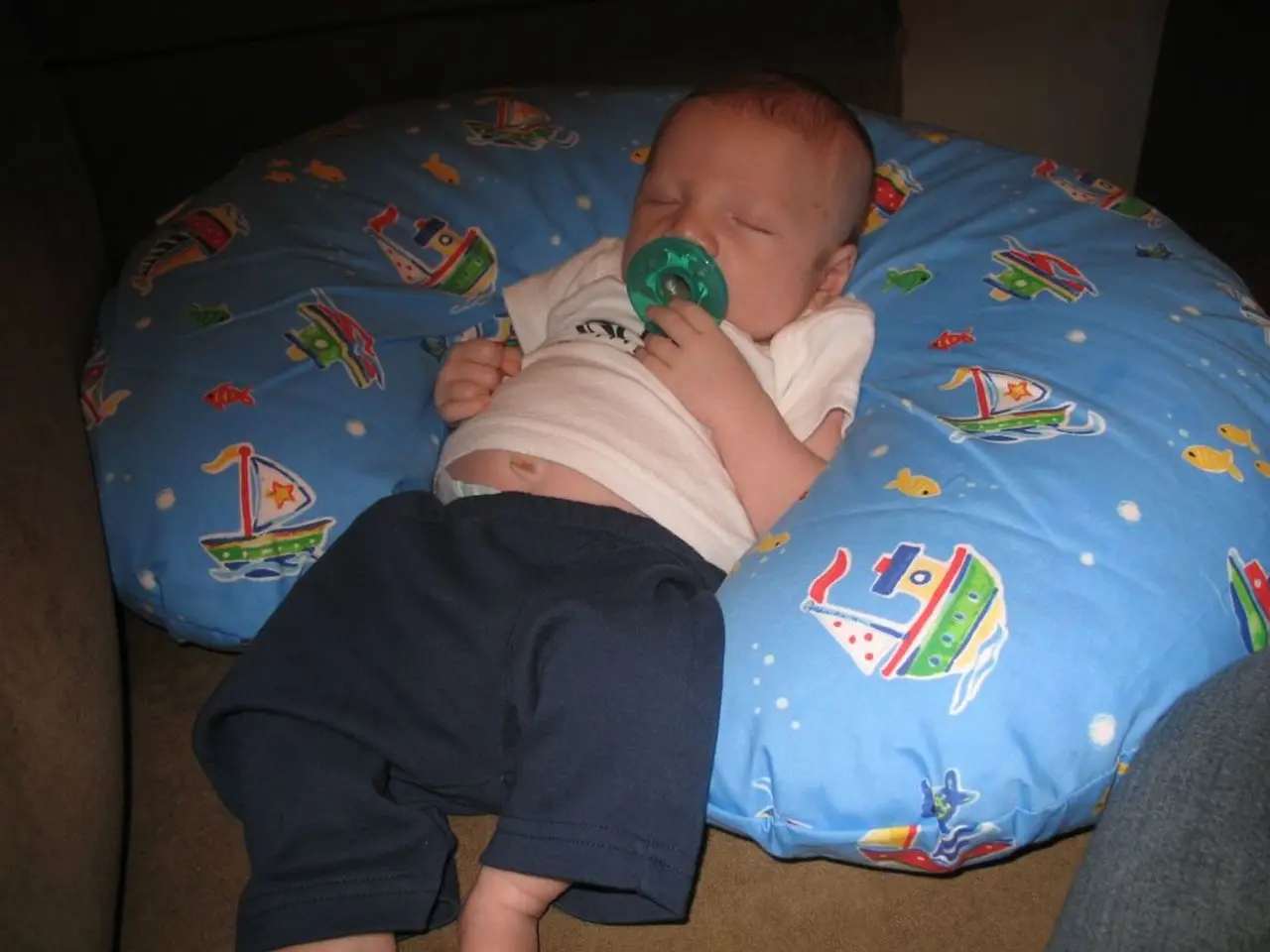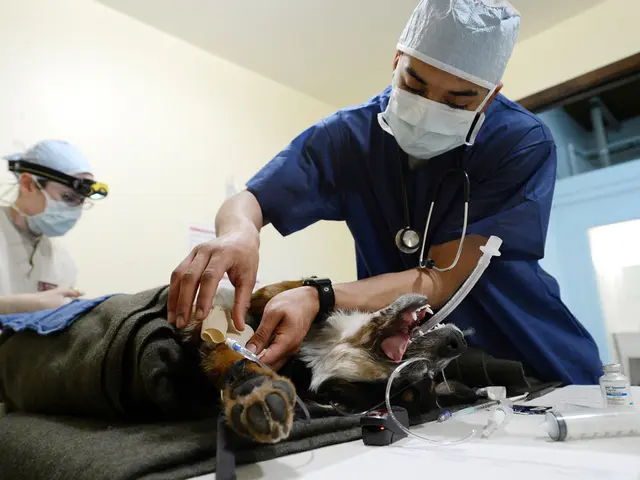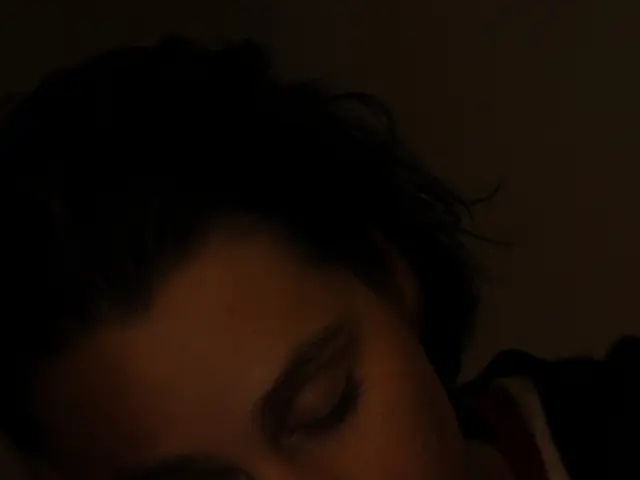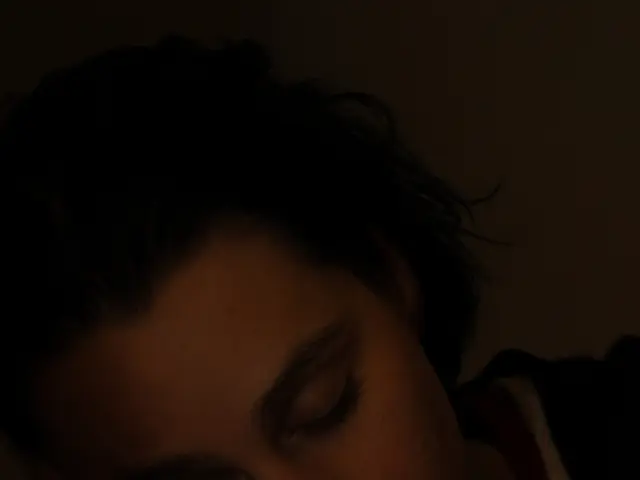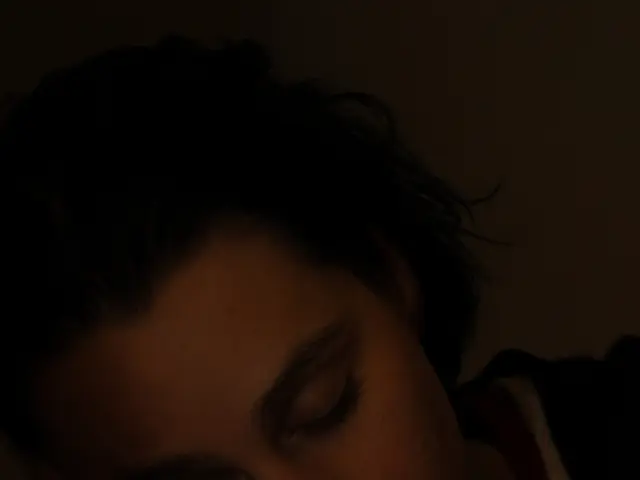Actions That Cease During Sleep Due to Your Physiological State
During the night, when your body's catching its zzz's, it strangely shuts down a good chunk of your muscular functions – and that's a darn good thing. This state of temporary paralysis is part and parcel of getting the sleep your bod needs. You might've heard about sleep paralysis, a spine-chilling sensation that leaves you awake yet immobilized. Sufferers experience this creeping dread, and no one in their right mind would wish for this experience.
Experts are still scratching their heads about the exact cause of this sleepy horror story, but it seems to be tied to the Rapid Eye Movement (REM) cycle, the stage of sleep when dreams usually happen. These dreams get so real that our brains make sure we don't enact them in real life by paralyzing our voluntary muscles. This phenomenon is known as REM atonia.
So, when you're dreaming about being a superhero leaping off buildings, your body can't actually carry out these actions, thank goodness! But what about essential functions such as sneezing? Surely we should still be able to expel those pesky particles when we're snoozing, right? False alarm! The same mechanism that prevents us from acting out our dreams also stops us from sneezing during sleep, even in those crucial REM stages.
Now, this inability to sneeze during certain stages of sleep seems like a natural protection mechanism against acting out our dreams. But it gets a bit more thought-provoking when you consider it in relation to sleep paralysis, a temporary loss of voluntary muscle control that we experience as merely waking up or drifting off to sleep. This muscle atonia, caused by the same biological mechanisms that suppress sneezing, is directly related to sleep paralysis.
In lighter stages of sleep, the sneezing reflex can still be triggered as muscles are not entirely paralyzed. However, during REM sleep, even if particles irritate the nasal mucosa, the nerve signals that initiate a sneeze are rendered futile due to paralysis. In simpler terms, your body's protective mechanisms are in overdrive during sleep to prevent any weird dream-related antics.
To sum it all up:- Sneezing is a no-go during REM sleep due to muscle paralysis to prevent acting out dreams.- This paralysis keeps involuntary muscles like breathing and eye muscles functional while limiting voluntary muscles required for sneezing.- Sleep paralysis is a somewhat related phenomenon where this muscle atonia lingers just after waking or dozing off, making voluntary movement impossible.- Therefore, the suppression of sneezing is due to the same biological processes that cause sleep paralysis. Now, goes to show that even in our dreams, we're not in control – who knew Our bodies were such control freaks?[1][2]
During REM sleep, when mental-health activities like dreaming occur, the body also inhibits the ability to sneeze (health-and-wellness) to prevent enacting dreams, a fact that ties into the phenomenon of sleep paralysis, a temporary loss of voluntary muscle control related to mental-health. In both instances, the body's sleep-induced muscle paralysis keeps involuntary muscles functional while limiting voluntary movements, displaying its control over our bodily functions even in our dreams.
